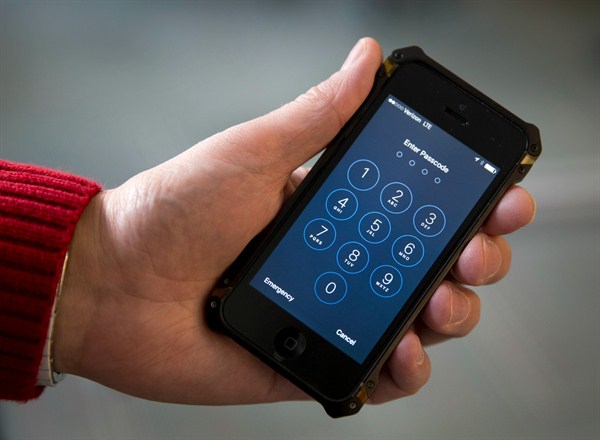The standoff this past week between the U.S. government and the global tech behemoth Apple underscores an enduring condition of our age: Technological innovation is at once a powerful tool to enhance our security, but maximizing its consumer benefits requires resisting government regulation and control. The private sector and government will have to find a more satisfactory partnership if they are to achieve the necessary but difficult balance that entails.
The fascinating struggle between the U.S. national security establishment and Apple over unlocking the cellphone of Syed Rizwan Farook—the San Bernadino, California, terrorist—captures many of the dilemmas of the fraught relationship between government and private-sector innovators. The U.S. government, the FBI in particular, believes that Farook’s cellphone may contain information that could help prevent another terrorist attack in the United States. Therefore, it argues, the company has an obligation to override its own protocols to provide that critical information. It resorted to filing a suit against Apple last week, after months of trying to reach a voluntary agreement. The company sees its primary responsibility as serving its customers and its shareholders. It does not want to compromise the privacy assurances it has provided that have made its products so desirable in the global marketplace.
The media coverage suggests the dispute has been a real standoff, with Apple unwilling to cooperate. Hopefully, however, there is a back story where reasonable officials on both sides are working to find a compromise, as the long legal delays in resolving the issue will increase the security risk the FBI is trying to reduce. But the story is only one of many examples where recent technological innovations birthed in the consumer-driven business world can be used by government for its functions, and abused by nonstate actors with violent or other disruptive purpose. Who decides what’s good for the citizen and the consumer, and how to manage tradeoffs between the competing interests?

